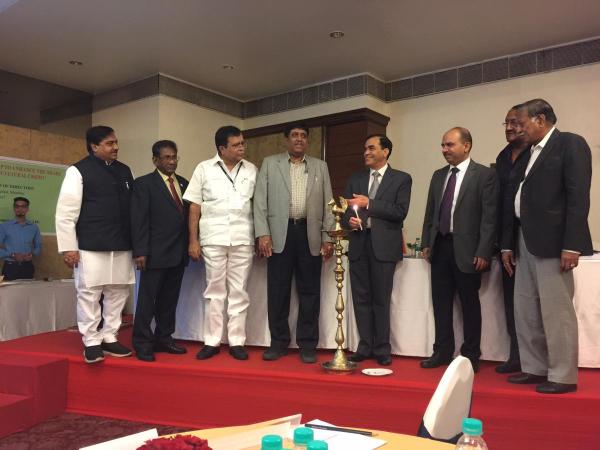Roadmap to enhance share of cooperative banks in Agricultural Credit

The National Federation of State Cooperative Banks (NAFSCOB) held a one-day National Seminar on the Roadmap to enhance share of Cooperative Banks in Agricultural Credit in Mumbai. The meeting attended was attended by officials from the State and District Cooperative Banks, the National Bank for Agriculture and Rural Development (NABARD), the National Cooperative Union of India and the Ministry of Agriculture and Farmers Welfare, Government of India. The genesis of the road map had its roots in the concern expressed by Mr. Harsh Kumar Banwala, Chairman, NABARD in July 2016 about the declining pre-eminence of cooperative banks in agriculture credit, negative perception of the public about co-operative banks, and capability of cooperative banks in delivering banking services and products driven by technology. Following this observation, an internal committee was constituted comprising of members of State Cooperative Banks to look at the status of cooperative banks, analyze performance, and prepare a road map. The roadmaplooks at ways in which cooperative banks can fulfill the governments mandate to double the income of farmers by 2022 by addressing issues related to leadership, human resources, performance and technology.
The five-years roadmap calls for action across all levels of the three-tier structure – primary cooperative societies, district cooperative banks, state cooperative banks and national federation. Speaking at the seminar, Dr. Ashish Kumar Bhutani, Joint Secretary asked banks to improve their data collection mechanism and provide constant feedback to the government on the various programs being implemented. Adoption of technology was the constant reference made in the speeches by the ministry, RBI and NABARD. Dr. Bhanwala in his speech mentioned about the commitment of NABARD to cooperative banks but called on them to institute internal reforms in areas of manpower, representation of members, and documentation of good practices; and take advantage of incentives (grants to convert to RuPay card, micro ATMs) provided by the government to improve systems.



